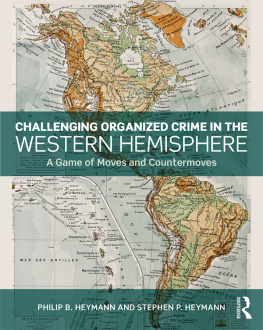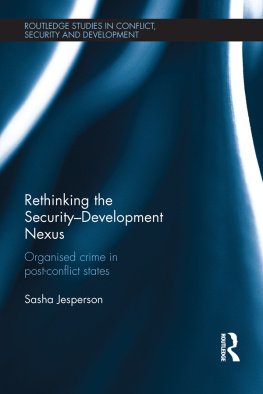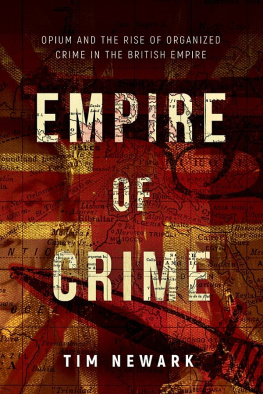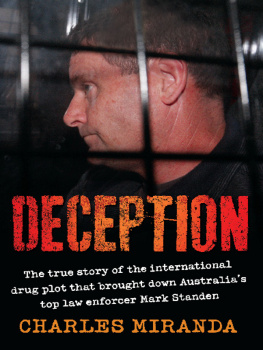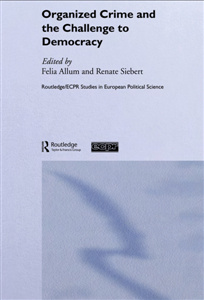David Bright and Chad Whelan have written a must-read primer for anyone seeking to understand, investigate, or respond to organised crime. Combining research findings with practical examples from the field, this book illustrates how surveillance, detection and enforcement efforts to disrupt organized crime benefit from adopting a network perspective.
Gisela Bichler , Professor of Criminology, California State University, San Bernadino, USA
At a general level, social theory has long observed social relations in terms of networks. This book neatly brings together what is understood about how concepts concerning social networks informs thinking about both crime and law enforcement. Readers will benefit from the clear elucidation of research and theory in this policy domain.
James Sheptycki , Professor of Criminology, York University, Toronto, Canada
This is a timely, lucid, and well-informed examination of the network perspective as it relates to organized crime and organized crime control. The main emphasis is on the potential, as well as on the limitations, of conceptualizing organized crime in terms of criminal networks In many ways, this book is a valuable contribution to the literature.
Klaus von Lampe, Professor of Criminology, Berlin School of Economics and Law, Germany
Organised Crime and Law Enforcement
Organised Crime and Law Enforcement: A Network Perspective examines organised crime and law enforcement through the conceptual lens of networks . The book takes stock of the many ways in which network theories and concepts, including social network analysis, can apply to studying both organised crime and law enforcement responses to organised crime. It is the first attempt to bring these diverse network perspectives and distinct fields of research together.
The book is organised into two parts. The first part uses network perspectives to advance understanding of the interconnected social structure of organised criminal groups, to expose their strengths and vulnerabilities, and to illuminate factors that enable such groups to undertake complex criminal activities. The second part uses a network lens to examine the challenges that organised criminal groups present for a wide range of law enforcement agencies, and the utility of network theories and concepts in understanding and informing their responses to organised crime.
Written in a clear and direct style, the book will appeal to scholars and practitioners of criminology, sociology, law enforcement, and all those interested in learning more about theories of organised crime and its relationship with law enforcement.
David Bright is an Associate Professor of Criminology with the Centre for Crime Policy and Research at Flinders University, Adelaide, Australia.
Chad Whelan is an Associate Professor of Criminology in the School of Humanities and Social Sciences at Deakin University, Geelong, Australia
Routledge Studies in Organised Crime
This series offers a forum for international academic research that advances understandings of the nature of organised crime, its representations, and the policies and practices surrounding it. Routledge Studies in Organised Crime is the home for cross-cutting, empirically and theoretically ambitious studies as well as impactful academic-practitioner collaborations, drawing from a wide range of geographical, cultural, political, and social contexts.
Edited by Prof. Georgios A. Antonopoulos, Teesside University, Middlesbrough, UK
Organised Crime and Law Enforcement
A Network Perspective
David Bright and Chad Whelan
Organised Crime and Law Enforcement
A Network Perspective
David Bright and Chad Whelan
First published 2021
by Routledge
2 Park Square, Milton Park, Abingdon, Oxon OX14 4RN
and by Routledge
52 Vanderbilt Avenue, New York, NY 10017
Routledge is an imprint of the Taylor & Francis Group, an informa business
2021 David Bright and Chad Whelan
The right of David Bright and Chad Whelan to be identified as authors of this work has been asserted by them in accordance with sections 77 and 78 of the Copyright, Designs and Patents Act 1988.
All rights reserved. No part of this book may be reprinted or reproduced or utilised in any form or by any electronic, mechanical, or other means, now known or hereafter invented, including photocopying and recording, or in any information storage or retrieval system, without permission in writing from the publishers.
Trademark notice : Product or corporate names may be trademarks or registered trademarks, and are used only for identification and explanation without intent to infringe.
British Library Cataloguing-in-Publication Data
A catalogue record for this book is available from the British Library
Library of Congress Cataloging-in-Publication Data
A catalog record has been requested for this book
ISBN: 978-1-138-69711-9 (hbk)
ISBN: 978-1-315-52257-9 (ebk)
Typeset in Bembo
by Deanta Global Publishing Services, Chennai, India
Contents
PART 1
Organised Crime
Part 2
Law enforcement
| The continuum from markets to hierarchies |
| A network representing friendships among five people |
| A directed tie |
| A hub and spoke (or star) network |
| A chain network |
| Path lengths |
| Example of a centralised network |
| Degree distribution in exponential networks |
| Degree centrality in a hub and spoke network |
| Between centrality and brokerage |
| Identifying ideal brokers: the four quadrants |
| Closeness centrality |
| Directed edge weights based on the number of phone calls between actors |
| A network map showing two hubs (Actors A and B) |
| Redundancies in information flows across a network |
| Hypothetical example of cascading arrests through a network |
| Compartmentalisation |
| Time to task for profit-motivated and ideologically-motivated networks |
| A cut set and the impact of removal |
| Impact of a removal of peripheral actors |
| Network fragmentation following removal of hubs |
| Roles within a methamphetamine manufacture and trafficking network (from Bright et al., 2012) |
| ABF | Australian Border Force |
| ACBP | Australian Customs and Border Protection |
| ACC | Australian Crime Commission |
| ACIC | Australian Criminal Intelligence Commission |
| ACID | Australian Criminal Intelligence Database |
| ACIIS | Automated Criminal Intelligence Information Centre (Canada) |
| ACLEI | Australian Commission for Law Enforcement Integrity |
| ACT | Australian Capital Territory |
| AFP | Australian Federal Police |
| AIHW | Australian Institute of Health and Welfare |
| ALEIN | Australian Law Enforcement Intelligence Network |
| ATO | Australian Tax Office |


